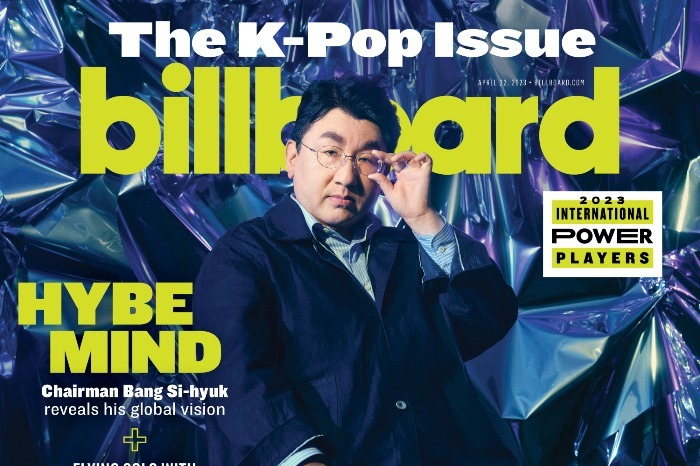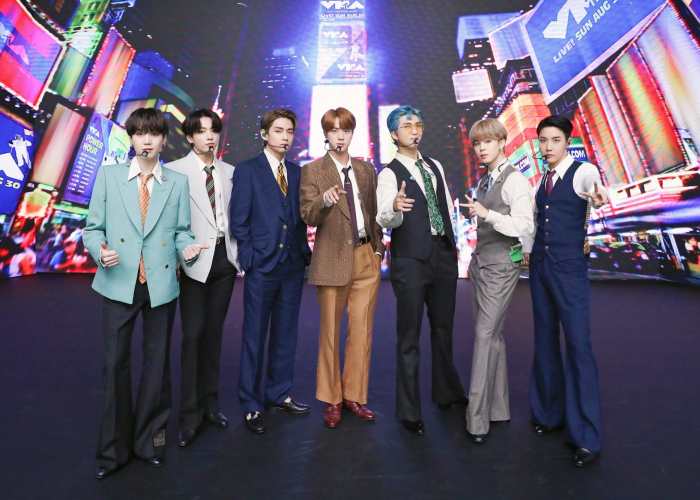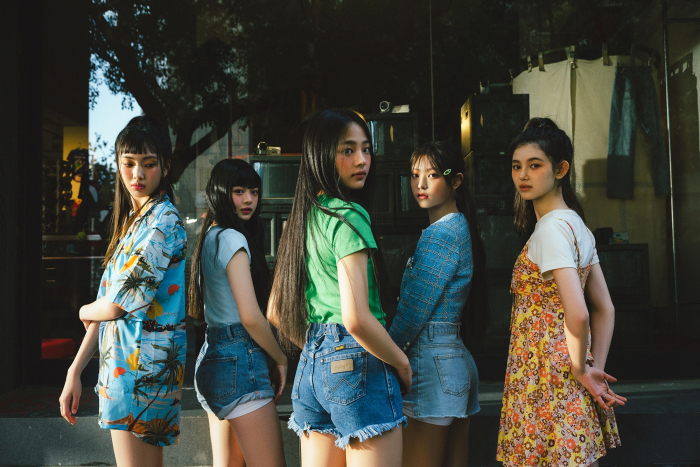The KED View
K-pop without ‘K’ nurtured to evolve into global mainstream genre
The sustainability of K-pop depends on localization beyond globalization
By Sep 19, 2023 (Gmt+09:00)
3
Min read
Most Read
LG Chem to sell water filter business to Glenwood PE for $692 million


KT&G eyes overseas M&A after rejecting activist fund's offer


Kyobo Life poised to buy Japan’s SBI Group-owned savings bank


StockX in merger talks with Naver’s online reseller Kream


Meritz backs half of ex-manager’s $210 mn hedge fund



Bang Si-hyuk, founder and chairman of South Korea’s entertainment powerhouse HYBE Co., has been leading a global girl group audition program in the US in collaboration with Universal Music Group’s Geffen Records for more than a year.
The first-ever joint project between a K-pop entertainment company and a major US record label, launched in late 2021, reflects Bang’s sense of crisis: Who is going to carry the K-pop torch after global sensation BTS?
“If we become complacent with our current achievements, we will be eliminated in an instant,” Bang said last March at a forum hosted by the Kwanhoon Club, a South Korean association of journalists.
Chairman Bang is now attempting to transplant the K-pop idol system to the US mainland, the birthplace of pop music, from discovering and nurturing to debuting artists.
“I have wanted to form an international group based on K-pop methodology for a while,” Bang said in a joint press event with Geffen in California in late August.
"I am proud of the opportunities we have created within the K-pop universe.”

Last year, seven K-pop groups swept the 10 best-selling album charts in the US, including three boy bands -- BTS, Tomorrow X Together and Stray Kids -- and girl group Twice.
Riding on this boom, South Korea's music exports reached an all-time high of $233.1 million in 2022.
Some analyses indicated that the BTS-led increase in national brand value and economic trickle-down effect is greater than that of hosting the Olympic games.
As such, K-pop is a national strategic industry with overwhelming influence.
WARNING SIGNAL
However, it is premature to say that K-pop has entered the global mainstream.
The number of times K-pop artists entered the Billboard Hot 100 chart, an indicator of global popular music, dropped 53% to 26 times last year from the previous year.

Recorded music exports to major Southeast Asian countries, long considered the bastion of the Korean Wave, decreased by about 30% in 2022, compared to the previous year. In particular, music exports to Indonesia plunged 60%.
This sounds the alarm that more and more countries are imitating the idol training system at the core of K-pop's competitiveness.
Further, K-pop companies are still caught between whales.
K-pop companies’ share of the global music album and streaming markets is less than 2% in terms of aggregate sales. HYBE, South Korea’s top entertainment company, accounts for 0.9%.
By comparison, three global music behemoths -- Universal Music, Sony Music and Warner Music – command a whopping 67.4% of the market.

LOCALIZATION
The winning strategy for South Korea’s entertainment industry is “localization.”
Lee Soo-man, founder and former chief producer of SM Entertainment Co., has introduced the “three-stage evolution theory of the Korean Wave."
If the first step is to export Korean singers and albums overseas, the second step is to recruit overseas members and nurture them as a multinational team. Discovering and fostering local artists in cooperation with local companies correspond to the third stage.

In this environment, the debate surrounding "Is a song sung in the local language by a group of local members really K-pop?" is pointless.
If K-pop does not evolve into a sustainable genre and industry, it may end up a short-lived syndrome like Japanese J-pop in the 1990s.
Write to Byung-yun Yoo at yoob@hankyung.com
Yeonhee Kim edited this article.
More to Read
-
 K-popK-pop rookies, fresh boost for Korean entertainment stocks
K-popK-pop rookies, fresh boost for Korean entertainment stocksAug 29, 2023 (Gmt+09:00)
2 Min read -
 K-popK-pop label JYP Entertainment earnings disappoint; shares down
K-popK-pop label JYP Entertainment earnings disappoint; shares downAug 14, 2023 (Gmt+09:00)
1 Min read -

-

-

-

-
 Capital raisingHYBE in talks to raise $380 million to reach beyond K-pop: Bloomberg
Capital raisingHYBE in talks to raise $380 million to reach beyond K-pop: BloombergJun 02, 2023 (Gmt+09:00)
3 Min read -
 K-popFifty Fifty longest K-pop girl group to stay on Billboard Hot 100
K-popFifty Fifty longest K-pop girl group to stay on Billboard Hot 100May 24, 2023 (Gmt+09:00)
1 Min read -

-
 EntertainmentHYBE bets big on AI; to unveil generative AI project in May: Chairman Bang
EntertainmentHYBE bets big on AI; to unveil generative AI project in May: Chairman BangApr 27, 2023 (Gmt+09:00)
3 Min read
Comment 0
LOG IN


